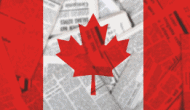Ethical Journalism News
|
| In theory, press councils are an important element of the “media accountability system” of a country — the ways that citizens hold the media accountable and responsible. Other elements are ombudsmen and public editors. Laws are one way to hold the media accountability. But the idea of a self-regulating free press inclines many journalists to favor non-legal mechanisms for hearing complaints, such as councils.
Continue …
|
|

|
|
| Pakistan’s national television channel is back on air after security forces removed anti-government protesters from its headquarters in Islamabad. Troops were sent in to regain control from demonstrators who had forced their way into the PTV offices. Earlier, fresh clashes erupted between protesters and police in the capital. (via BBC) |
|
| The leaking of hundreds of private and intimate photographs of Hollywood celebrities cast new doubt on the security of popular online storage sites Monday as investigators probed for explanations of the high-profile breach. Privacy experts joined Hollywood publicists in denouncing the leaks, which flooded Web sites over the weekend with nude images of more than a half-dozen A-list actresses and performers, including Oscar winner Jennifer Lawrence, star of “The Hunger Games” and “Silver Linings Playbook.” (via Washington Post) |
|
| When James Foley was beheaded by the Islamic State (IS) group after being held captive for two years, the American journalist became a big part of a story he was just there to cover. The IS staged the execution, captured it on video and disseminated the footage on the internet to deliver their message. The video shocked anyone who saw it and raised editorial and ethical dilemmas in the newsrooms around the world over reporting the facts without becoming a propaganda tool of the IS. (via Al Jazeera) |
|
| From the New York Times Public Editor: “Several readers wrote to me concerned about a Times article earlier this week that told the stories of some Dominican teenagers who described sexual abuse by a former priest and Vatican official. They told me they were surprised and dismayed to see the young people identified by name with their photographs used in an accompanying gallery.” (via New York Times) |
|
| Media managers in East Africa have asked journalism training institutions in the region to consider changing the curriculum from one which focuses on theories to a skill-based approach. Speaking during the 4th annual conference of the East African Communication Association (EACA), the media managers observed that many fresh journalism graduates joining media houses straight from the universities go when they are half-baked. (via New Vision Uganda) |
|
| Many of those who control access have decided that, thanks to technology, they need news organizations less and less to deliver their messages. So as they steadily build their capacity and expertise for communicating directly to the public, they grow bolder about telling journalists to take a walk. Journalists must keep up—no, escalate—the fight for access to information the public needs and has a right to get. At the same time, we must get much better at covering the news without the access that others control. (via Poynter) |
|